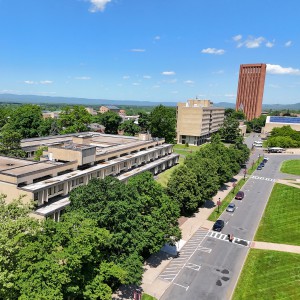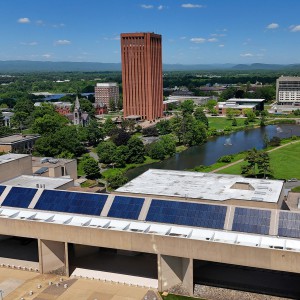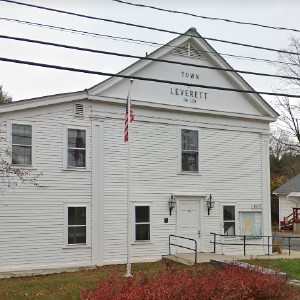Amherst-Pelham Regional Schools already talking budget for next year

Amherst Regional Middle School Building
| Published: 07-25-2024 12:52 PM |
AMHERST — Continued fallout from the approved $35.27 million fiscal year 2025 budget for the Amherst-Pelham Regional Schools, which exceeded financial guidelines set by the town of Amherst while falling short of maintaining all existing staff and programs, is prompting school officials to get an early start on discussing next year’s budget.
Less than a month into the new fiscal year that began July 1, the Amherst Regional School Committee on Tuesday began talking about how to avoid budget uncertainties, with new Superintendent E. Xiomara Herman explaining that the Amherst Town Council wants budget preparations to begin as soon as possible.
“From my initial incoming conversations, there’s definitely expectation that we have budget projections a lot earlier,” Herman told.
Herman said iterations of the fiscal year 2026 budget will be brought much sooner than this past year, when initial projections were released in late fall and then a spending plan was refined over the winter, when the first understanding of how many positions would be cut.
The discussion comes as the school committee was informed that it shouldn’t expect the same level of support next year, with a letter from the Town Council advising it couldn’t support the schools beyond a 2.5% increase in fiscal year 2026, and to also not build the fiscal year 2026 budget with a 6% increase as the base.
“A first step is for the Regional School Committee to engage in discussions among all four towns to understand our ability to support education in our municipalities and in the region,” reads the letter signed by Council President Lynn Griesemer.
While not responding to that letter, the regional panel has formed the Budget and Audit Subcommittee, made up of Chairwoman Sarahbess Kenney of Pelham, Amherst representative Sarah Marshall and Leverett representative Tilman Wolf.
That subcommittee, which met on July 3, came up with a series of ideas for better planning for the budget, including seeking authorization or approval for one or more members of the school committee to regularly meet with Herman or her designee during the budget process.
Article continues after...
Yesterday's Most Read Articles
 ‘Delightful’ Northampton store shopping guide Jane Hertz, 88, seeking next gig
‘Delightful’ Northampton store shopping guide Jane Hertz, 88, seeking next gig
 ‘Whole campus’ approach: UMass working to help six students whose visas, status were revoked
‘Whole campus’ approach: UMass working to help six students whose visas, status were revoked
 Five UMass Amherst students have visas, student status revoked
Five UMass Amherst students have visas, student status revoked
 Amherst finance director to return to UMass
Amherst finance director to return to UMass
 ‘Hands Off’ protest: 5,000 people in half-dozen Hampshire County communities protest against Trump policies
‘Hands Off’ protest: 5,000 people in half-dozen Hampshire County communities protest against Trump policies
 Long-vacant former Faces spot in Northampton gets new tenant
Long-vacant former Faces spot in Northampton gets new tenant
The other ideas include more involvement by the regional committee on developing the budget, getting more feedback from the public, appropriately involving the regional partners in the budget process, identifying educational priorities and including in the public budget presentation justifications for cuts or alterations to programming.
Marshall said the subcommittee also talked about building a budget from the articulation of goals for the regional schools, but advised against using a zero-based budget, a process in which there would have to be justification for all spending.
Herman said she is having conversations about bringing in outside consultants to examine the budget, but is likely not to pursue an idea included in her entry plan that would use a key performance indicators, or KPI model, with respect to the budget.
“We need time to analyze and dig deep, and I think that’s the critical conversation around budgeting right now,” Herman said.
Finance Director Douglas Slaughter, who had been serving as interim superintendent, told the committee that earlier planning doesn’t make better planning, and that school officials know that a $1.2 million to $1.4 million deficit is looming. “To have that level of change is going to be profound,” Slaughter said.
Amherst representative Bridget Hynes said school officials need to have conversation with the towns about how to deliver realistic education with the resources available.
Shutesbury representative Anna Heard said the Amherst Town Council goal of 2.5% increase may be impossible next year, especially with the loss of Elementary and Secondary Emergency Relief funds that have supported the budget.
“I don’t think it’s going to happen unless we drastically decimate our educational system” Heard said.
While discussion is good, Pelham representative William Sherr said there is no need to respond to the Amherst Town Council letter. “I think it was just a response to aggravate us,” Sherr said.
Amherst representative Irv Rhodes said he wants people to understand the challenges and potential deficit. “We need to put that number out there to the four towns, so that’s our early warning signal,” Rhodes said.
Wolf said all four towns need to have the same starting point for the budget, even though the letter from Amherst seems to indicate the Town Council wants to not count the American Rescue Plan Act money it used to support its assessment.
One method for supporting the budget Herman would like to explore is seeking competitive grants. Herman said she has asked Assistant Director of Finance Shannon Bernacchia to begin this work. “It’s competitive, so we’ll have to show a good, clear picture,” Herman said.
Herman said when she began July 1 she was surprised at the cuts to central office staff and the apparent “expectation to run a central office in a district office, with a skeleton crew, or no crew,” Herman said. So far, she has been doing some creative revisions to fill critical gaps in that staff.
Scott Merzbach can be reached at smerzbach@gazettenet.com.






 Q&A with UMass President Marty Meehan
Q&A with UMass President Marty Meehan Leverett will consider accepting 147-acre working forest at May’s town meeting; public hearing this Thursday
Leverett will consider accepting 147-acre working forest at May’s town meeting; public hearing this Thursday
